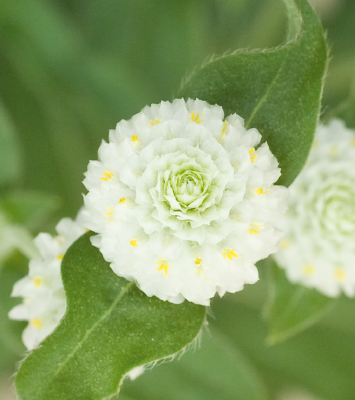
Las Vegas White
Item no.: GG0103R- Sun lover – heat and drought tolerant
- Vigorous growth for landscape plantings
- Possible usage as vut flower
- Fresh flower colors
- Crop Time
- Spring: 11 - 12 weeks
- Height ∅
- 18 ″ / 45 cm
- Exposure
- Sun
- Seed Form
- Raw Seed
- Best Uses
- Bedding, Cutflower, Landscape
Culture guide
Usage
Long lasting fresh cut flower. Borders, annual beds or containers.
Sow time
January-June, sowing in intervals
Sowing method
1-2 seeds per plug, sowing directly into pots is possible
Germination
10-14 days at 72-77 °F (22-25°C). Cover seed lightly after sowing. Avoid overwatering for best germination and root growth.
Growing on
Transplant plugs after 5-6 weeks. Grow on at 62-65 °F (17-15 °C). Maintain pH levels of 5.5 -6.2. Apply 150 ppm nitrogen weekly in a well balanced
Media
Use a well-drained, growing substrate with 15-30 % clay, 0-20 % parts (e.g. coconut fibres, perlite), 1-1.5 kg/m³ complete balanced fertilizer, 0-2 kg/m³ slow release fertilizer (3 months), iron-chelate, micronutrients, pH: 5.5-5.8.
Temperature
Grow at 20-24 °C 68-75 °F during daytime and at 15 °C 59 °F during night or outdoors. Avoid temperatures below 10 °C 50 °F. Protect the young plants outdoors against frost. Gomphrena does not tolerate frost.
Fertilization
Moderate-high fertilization levels are required. Fertilize the crop weekly with 100-150 ppm nitrogen (at 2 kg/m³ slow release fertilizer in substrate), using complete balanced fertilizer. Avoid high ammonium and high nitrogen levels. Take care of the phosphate level in substrate.
Stage I Starts with the radicle breaking through the testa. The roots are touching the medium. Ends with fully developed cotyledons.
Stage II Starts from fully developed cotyledons. Ends with the fully developed true leaf or true leaf pair.
Stage III Starts from the fully developed true leaf or true leaf pair and ends with 80% of the young plants being marketable.
Stage IV All young plants are ready for sale and in the process of being hardened off. This stage lasts about 7 days.
The cultural recommendations are based on results from trials conducted under Central European conditions. Different conditions in other parts of the world may lead to deviations in results achieved.



